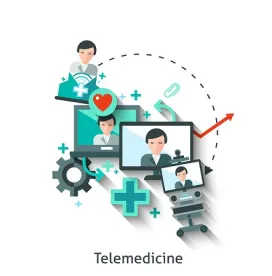The Delaware Board of Medicine has issued proposed regulations clarifying certain statutory provisions pertaining to telemedicine and telehealth. As we previously reported, Delaware’s Medical Practice Act imposes certain practice standards for what constitutes an appropriate patient diagnosis and treatment via telemedicine, including the allowable modalities and when an in-person examination is required. The new proposed regulations are intended to clarify the language in the statute to further define the allowable modalities and address telemedicine prescribing of opioids. If enacted, the regulations would add a new Rule 19.0 to Chapter 1700 of the Code of Delaware Regulations.
Telemedicine advocates and interested parties can make their voice heard by submitting comments on the proposed rules through April 2, 2018.
Current Delaware Telemedicine Law
Current Delaware law requires that physicians delivering care via telemedicine must, prior to a diagnosis and treatment, provide one of the following:
-
An appropriate examination in-person;
-
Have another Delaware-licensed practitioner at the originating site with the patient at the time of the diagnosis;
-
The diagnosis must be based using both audio and visual communication; or
-
The service meets standards of establishing a patient-physician relationship included as part of evidenced-based clinical practice guidelines in telemedicine developed by major medical specialty societies, such as those of radiology or pathology.
After a physician-patient relationship is properly established in accordance with the above, subsequent treatment of the same patient with the same physician need not satisfy the limitations above.
Three Ways the Proposed Rules Will Change Telemedicine Practice in Delaware
Providers and telemedicine companies should focus on these top three takeaways of the proposed rules, intended to clarify and add context to the statutory provisions set forth above:
- In-Person Examination. A remote, audio-only examination is not an “appropriate in-person examination” as that term is used in section 1769D(h)(1).
- Provider-Patient Relationships. For formation of the physician-patient relationship using audio and visual communications pursuant to section 1769D(h)(3), the audio and visual communications must be live, real-time communications.
- Acceptable Clinical Practice Guidelines. “Major medical specialty societies” as the term is used in section 1769D(h)(4) means specialty societies that are members of the Council of Medical Specialty Societies.
Prescribing Opioids via Telemedicine
Under the proposed rule, no opioid prescribing is permitted via telemedicine with the exception of addiction treatment programs offering medication assisted treatment that have received a Division of Substance Abuse and Mental Health (DSAMH) waiver to use telemedicine through DSAMH’s licensure or renewal process as outlined in 16 DE Admin. Code 6001 (Substance Abuse Facility Licensing Standards Sec. 4.15). All other controlled substance prescribing utilizing telemedicine remains held to the same standards of care and requisite practice as when prescribing via in-person visits.





 />i
/>i

